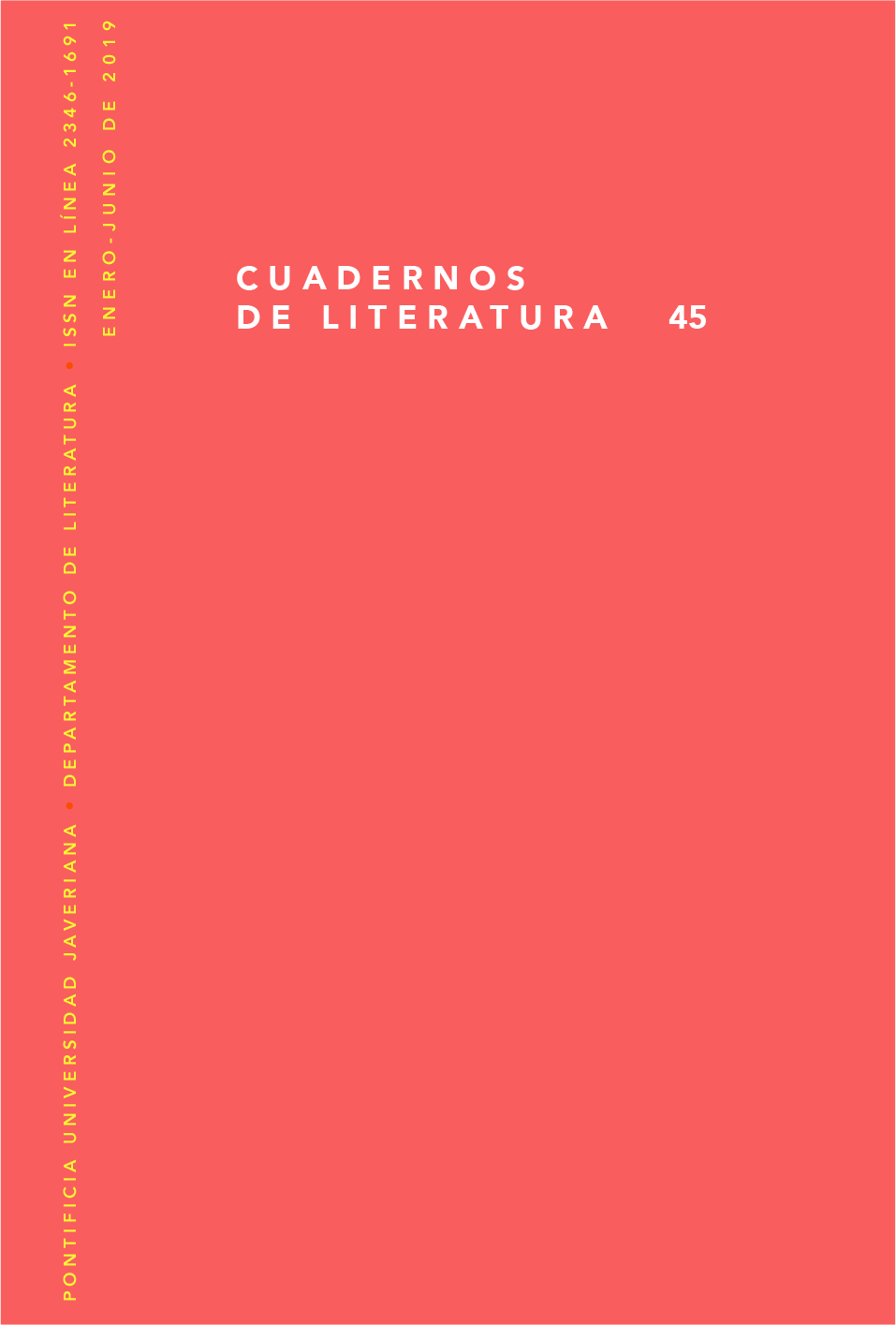Abstract
This article analyzes certain aspects of Domingo Faustino Sarmiento’s biography written by Ricardo Rojas and published in 1945: El profeta de la Pampa. Vida de Sarmiento. Among other things, special emphasis is laid on the biographer-biographee relationship, and how Rojas uses the biographical genre to proceed to a sort of seizure of Sarmiento’s legacy and to proclaim himself as the true inheritor of that legacy. At the same time, it emphasizes how, in a kind of role reversal between biographer and biographee, biography serves Rojas as a platform to continue with the nationalist preaching he had been performing since the first decades of the twentieth century in texts such as La restauración nacionalista or Blasón de Plata. Finally, on its reverse, an underlying failure is highlighted, a failure that, at different levels, would be both of the biographer and the biographee.
Alberdi, Juan Bautista. “Belgrano y sus historiadores”. Escritos póstumos. Tomo V. Buenos Aires: Imprenta Alberto Monkes, 1997. Impreso.
Altamirano, Carlos y Beatriz Sarlo. “La Argentina del Centenario: campo intelectual, vida literaria y temas ideológicos”. Ensayos Argentinos. De Sarmiento a la vanguardia. Buenos Aires: Ariel, 1997. 161-199. Impreso.
Bazant, Mílada, coord. Biografía. Métodos, metodologías y enfoques. México: El Colegio Mexiquense, 2013. Impreso.
Borges, Jorge Luis. Evaristo Carriego. Buenos Aires: M. Gleizer Editor, 1930. Impreso.
Degiovanni, Fernando. Los textos de la patria. Nacionalismo, políticas culturales y canon en Argentina. Rosario: Beatriz Viterbo, 2007. Impreso.
Dosse, François. La apuesta biográfica. Escribir una vida. Trad. Josep Aguado y Concha Miñana. Valencia: PUV, 2007. Impreso.
Edel, Leon. Vidas ajenas. Principia biographica. Trad. Evangelina Nuño de la Selva. Buenos Aires: Fondo de Cultura Económica, 1990. Impreso.
Fontana, Patricio. “Una tanatografía del bandido: Sarmiento y el ‘Chacho’ Peñaloza”. Ibero-Americana. América LatinaEspaña-Portugal 43 (2011): 29-40. Impreso.
Reis, Carlos y Cristin M. Lopes. Diccionario de narratología. Trad. Ángel Marcos de Dios. Salamanca: Ediciones Colegio de España, 1996. Impreso.
Roack, Katheleena Lucille. Acting America in the Age of Abolition: Transatlantic Black American Celebrity and the Rise of the Yankee Theatre, 1787-1927.
Rojas, Ricardo. El profeta de la Pampa. Vida de Sarmiento. Buenos Aires: Editorial Losada. Impreso.
Rojas, Ricardo. Historia de la literatura argentina (t. 3, “Los proscriptos”). Buenos Aires: Editorial Kraft, 1957. Impreso.
Sarmiento, Domingo Faustino. El Chacho. Último caudillo de la montonera de Los llanos. Los caudillos. Prólogo Alberto Palcos. Buenos Aires: Jackson Editores, 1945. Impreso.
Sarmiento, Domingo Faustino. Facundo. Eds. Nora Dottori y Silvia [Susana] Zanetti. Prol. Noé Jitrik. Caracas: Biblioteca Ayacucho, 1977. Impreso.
Sarmiento, Domingo Faustino. Viajes por Europa, África y América. Coord. Javier Fernández. Madrid: Colección Archivos-FCE, 1993. Impreso.
Sarlo, Beatriz. “Sarmiento en el siglo XX”. Historia crítica de la Literatura argentina, volumen 4: “Sarmiento”. Dir. vol. Adriana Amante. Dir. obra Noé Jitrik. Buenos Aires: Emecé, 2012. 367-391. Impreso.
Schiffino, María Beatriz. “Ricardo Rojas y la invención de la Argentina mestiza”. Revista Pilquen (Sección Ciencias Sociales) XIII.14 (2011): 1-14. Impreso.
Sorensen, Diana. El Facundo y la construcción de la cultura argentina. Trad. César Aira. Rosario: Beatriz Viterbo, 1998. Impreso.
Cuadernos de Literatura is registered under a Creative Commons Attribution 4.0 International Public License. Thus, this work may be reproduced, distributed, and publicly shared in digital format, as long as the names of the authors and Pontificia Universidad Javeriana are acknowledged. Others are allowed to quote, adapt, transform, auto-archive, republish, and create based on this material, for any purpose (even commercial ones), provided the authorship is duly acknowledged, a link to the original work is provided, and it is specified if changes have been made. Pontificia Universidad Javeriana does not hold the rights of published works and the authors are solely responsible for the contents of their works; they keep the moral, intellectual, privacy, and publicity rights.
Approving the intervention of the work (review, copy-editing, translation, layout) and the following outreach, are granted through an use license and not through an assignment of rights. This means the journal and Pontificia Universidad Javeriana cannot be held responsible for any ethical malpractice by the authors. As a consequence of the protection granted by the use license, the journal is not required to publish recantations or modify information already published, unless the errata stems from the editorial management process. Publishing contents in this journal does not generate royalties for contributors.


